Labour Market Access Project
GIZ Egypt
Deutsche Gesellschaft für Internationale Zusammenarbeit (GIZ) GmbH is a service provider in the field of international cooperation for sustainable development. Operating in Egypt since 1956, GIZ provides technical expertise, develops capacities, and delivers effective solutions in close partnership with local governmental and non-governmental organisations. GIZ supports Egypt in its efforts to achieve the Sustainable Development Strategy: Egypt Vision 2030 and to create better social and economic prospects for the Egyptian people.
On behalf of the German Government, the European Union and other parties, GIZ implements 16 projects in all parts of Egypt in the following areas of cooperation:
- Renewable Energy and Energy Efficiency
- Water Supply and Sanitation, Irrigation and Waste Management
- Sustainable Economic Development for Employment
- Governance and Urban Development.
GIZ projects contribute to SDG numbered 1 - 4 - 5 - 6 - 7 - 8 - 9 - 10 -11 - 16 below.

The Labour
Market Access Project, part of the Special Initiative for Stability and
Development in the MENA Region, contributes to promoting youth employment. It
is aimed at giving young women and men better access to the labour market and
employment that offers secure means of generating income. Increasing
participation through employment contributes to improving young people’s
prospects for a better life, enabling them to constructively participate in
developing their own vocational future and further improving their society.

The Challenge
The key challenge on the Egyptian labour market is the mismatch between labour supply and labour demand, particularly in the non-academic sector. As a result, this imbalance impedes young people’s access to appropriate employment.
The labour market in Egypt offers a great number of jobs, yet companies in all sectors have difficulty finding skilful employees. At the same time small and medium-sized enterprises (SMEs) could not offer employment opportunities that are attractive in terms of remuneration and working conditions.
The project’s main objective is to improve the employment situation for young Egyptian men and women aging between 18 – 35 years, particularly to the non-academic or blue-collar segment by improving ‘placement structures’ and ‘employment quality’.
Our Approach
The project seeks to facilitate young people’s access to the labour market and improve the quality of the current vacant positions as well as the future demand for blue-collar workers.
LMAP provides advice and support to strengthen the capacities of our partners to achieve the following:

Our Impact
Since the launch of the programme in January 2015, the below impact has been achieved and we'll continue to achieve our objectives to impove job placement structurtes and employment quality in the Egyptian labour market till September 2022.

Social Innovation - Egypt
The field of activity, innovative approaches for job placement and improving employment quality, aims to introduce non-conventional tech and non-tech solutions into the non-academic Egyptian labour market. The solutions help improve the job preparation, matchmaking processes and employment quality at SMEs.
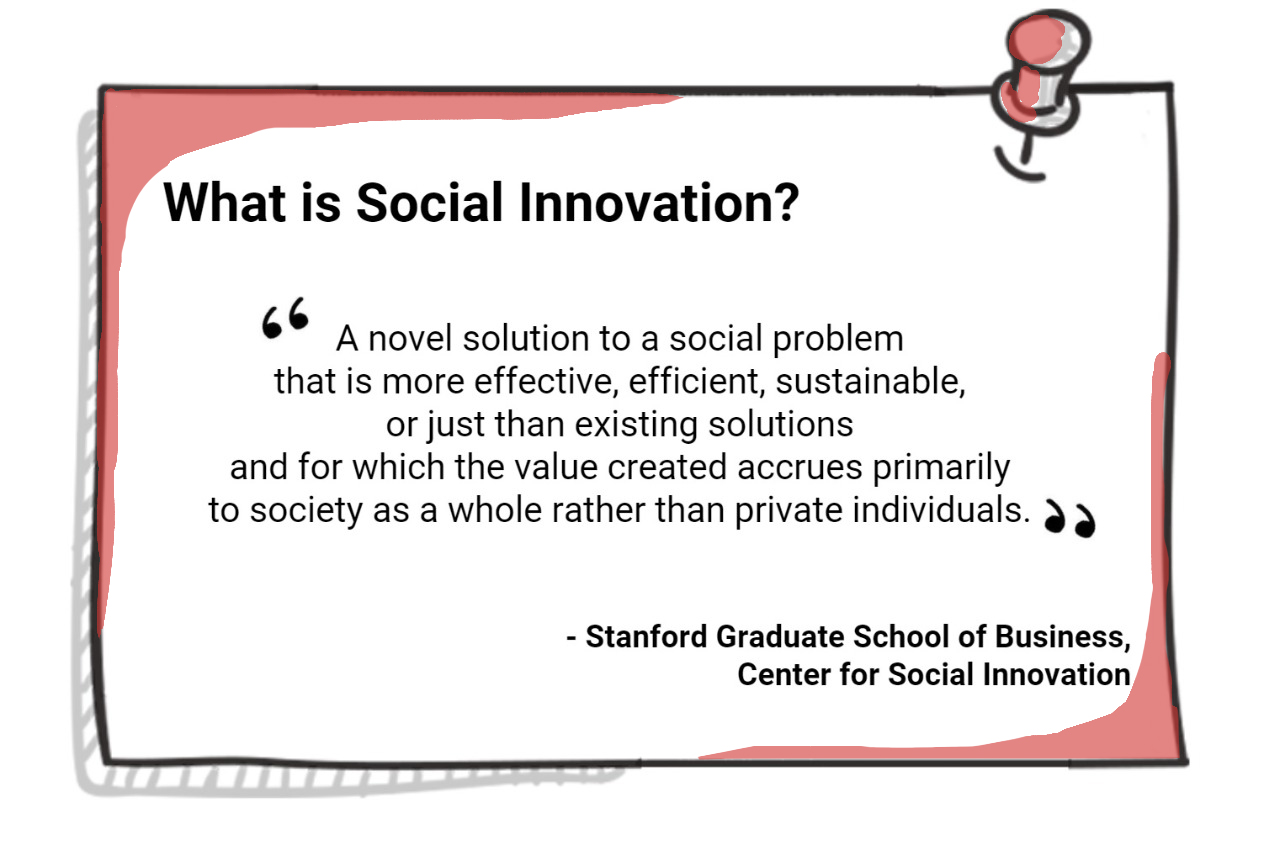
Our Network
We build a network of volunteers from different professional backgrounds and train them to use innovation methods and human-centeric approaches such as Design Thinking (DT) to run our innovation cycles and come up with customized labour market solutions.
You could know more details about our ‘Innovation Moderators’ (IMs) in the next tab.

Products/Services
Prototypes created during our 'Design Thinking' cycles aim to solve placement and job quality challenges. Prototypes developed are piloted at companies and go through several iterations until they become ready for scaling up at a wider range of SMEs for larger impact.
The following solutions types have been initially tested and seem to be appealing with promising effects:
- Gamified Solutions
- Serious Games
- 360° Job Profiles
- Digital Transformation
You can find further details on the developed prototypes in the next tab.
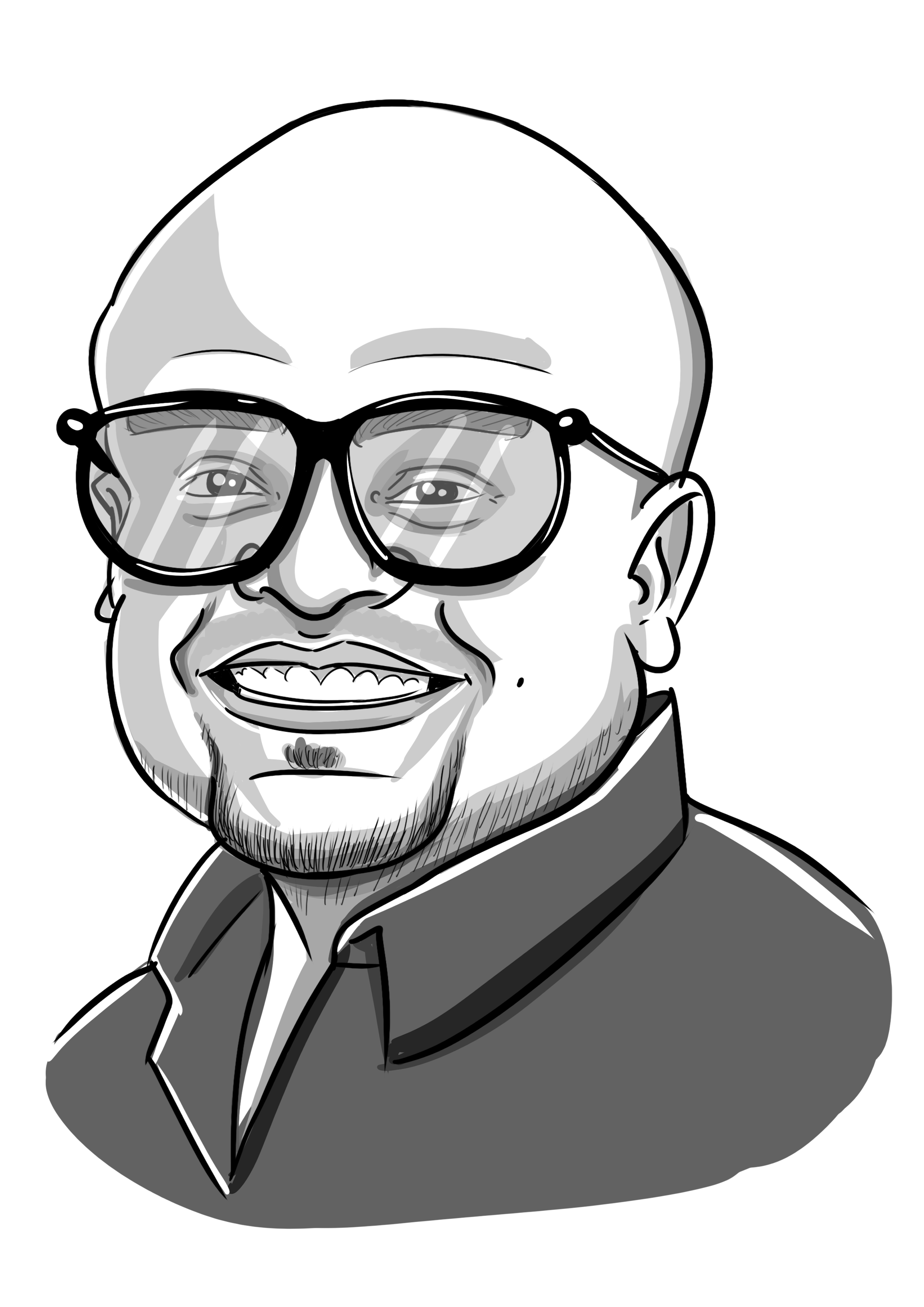
Mina Ghaly, a Social Innovation Expert at the Labor Market Access Program - GIZ, holds a Master's degree in International Development “Poverty, Inequality and Development Policies” from Birmingham University, UK who has also received a fellowship from the "Hands along the Nile" program – US Department of State. Mina has been selected to be part of Rowad 2030 program, to start a master’s program in Innovation Management and Entrepreneur through an academic collaboration between Cambridge university and Cairo University.
For over 15 years, Ghaly worked in many local and international development agencies. He participated in several development projects that tackle various community issues such as combating violence against women and children, youth empowerment, employment, decentralization, job quality and improve safe work environment for women.

Nada is a Mechatronics Engineering graduate from the GUC and finished her bachelor at the Technical University of Munich. During her study at the GUC, she started a student activity called Nawwar with the aim of creating educational and awareness videos using animation and motion graphics. Nawwar also organizes an animation school that teaches beginners the basic and advanced techniques of animation and motion graphics.
She turned Nawwar into a start-up that joined Injaz Startup Egypt program and was among the finalist teams. Nada was among the 14 entrepreneurs who travelled to Silicon Valley in "Meet Silicon Valley Program" sponsored by the US Embassy and organized by Injaz and Tech Wadi.
After that trip, Nada started a new start-up called Guided, which is a platform that helps parents discover and book kids activities and learning experiences. Nada also is a certified Design Thinking trainer by Zero 360. the innovation company in Berlin. She is part of the GIZ team working in the "Labour Market Access Project" and the "Social Innovation Platform".

Hoda Hamad is a certified Design Thinking Trainer by Zero360, Berlin. Her work in Design Thinking is mostly linked to the German Development Agency(GIZ) specifically with the Social Innovation cluster, where she has trained participants to address challenges related to the gap between blue-collar job seekers and blue-collar job providers. She has also worked with GIZ in partnership with the ITC ILO on the development of the online social innovation platform to make Design Thinking know-how accessible across Egypt.
In parallel, Hoda worked as the Business Development Lead at AlMakinah. After successfully completing AlMakinah's Full Stack Web Development Bootcamp, she combined her newly acquired technical skills, passion for education, and business know-how and channeled it towards growing Egypt's first tech school. In addition, she Managed two cycles of the Women In Tech Track at AlMakinah, where she focused on running funded programs(GearUp Women Edition) to increase female participation in the tech field. She graduated with highest honors, from the American University in Cairo with a Bachelors in Business Administration and Marketing and a minor in Economics.

Amina El Shazly is a product designer and independent consultant based in Egypt. She is specialized in Design and Future Making by virtue of her master’s degree obtained from Pforzheim University in 2019. She gained her experience in the field of product design and design thinking along the years during her teaching at the German University in Cairo and her practical field work in the informal handicraft sector in Egypt and with artisans in Morocco developing innovative strategies to support their market integration. She is a design thinking coach in GIZ-LMAP project and is currently working on building a social innovation platform with them. She uses empathy in her work to find different innovative ways and paths for new business and product development to enhance sustainability and market growth merging design, strategic thinking and innovations. She always examines the use of innovation to create positive changes and impacts on society to lead a better future (future literacy).

Hossam El Rashidy is the co-founder & CEO of Humachina. He studied law, electrical & computer engineering, programming, psychology and artificial intelligence. He has more than 12 years of experience in the education technology industry with special focus on mathematics, physics, ICT, youth and adult development.
During his professional path he found a great passion in psychology, education, and artificial intelligence. That why he cofounded Humachina. Humachina is a human centered artificial intelligence research- based startup, based in Egypt that works to bridge the gap between skilled workforce and labor market. Through an AI based human capital platform that recommends personalized learning and career paths for lifelong learners to achieve their career objective. At Humachina we are working on the psychological framework behind career coaching.
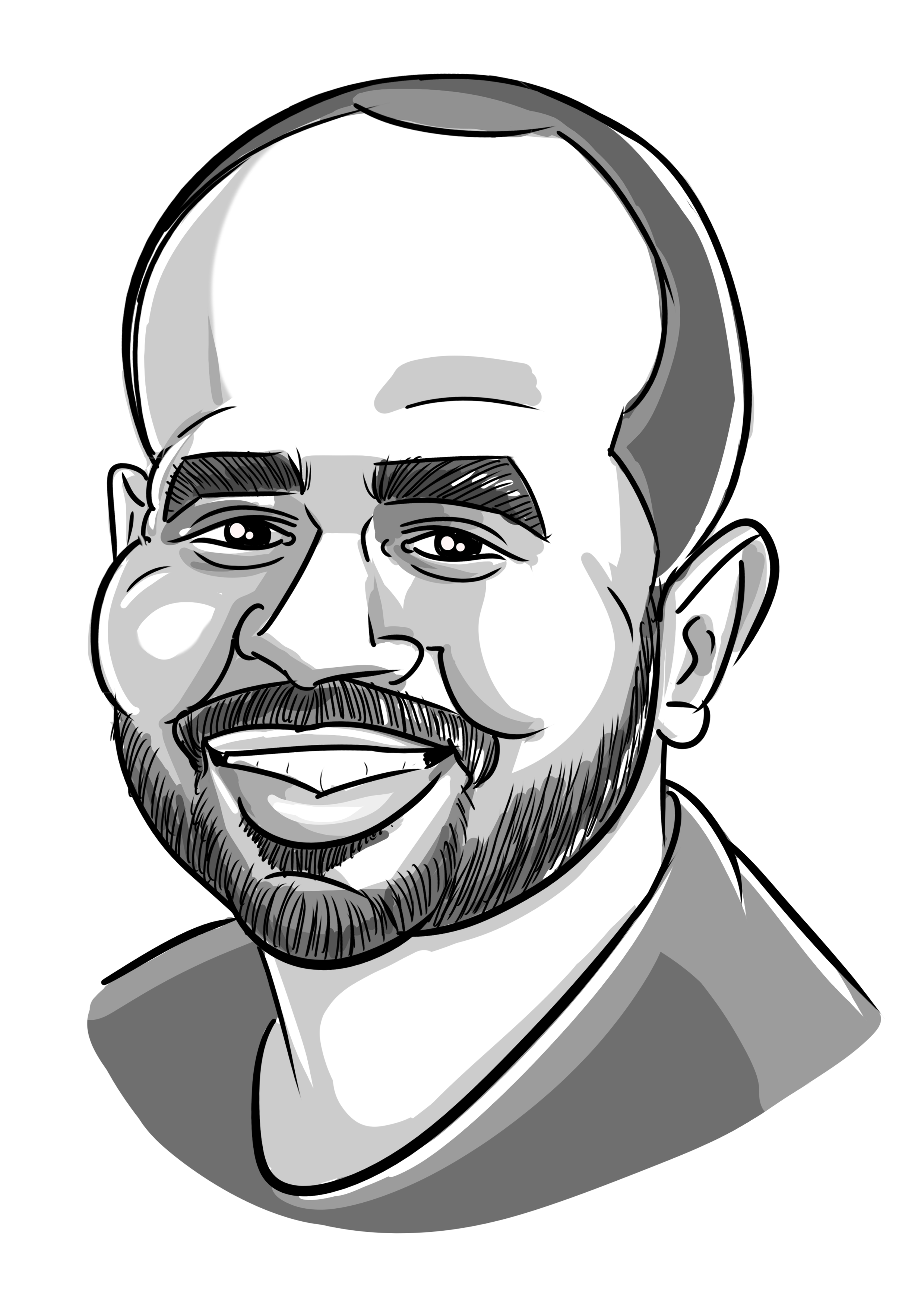
Diaa Adham is a business developer & venture builder. He holds a BSc in Electrical Engineering. He co-founded VWaste, a Cairo-based foodtech start-up that recycles agro-industrial waste. Later on, Diaa worked for global start-up accelerators like Seedstars and Rainmaking Innovation on several impactful programs, helping start-ups grow through mentorship, commercial development and corporate engagement, as well as helping corporations innovate through strategy analysis and harnessing the power of start-ups.
Diaa is passionate about helping organizations grow, with diverse experience in business development, design thinking & new products development.
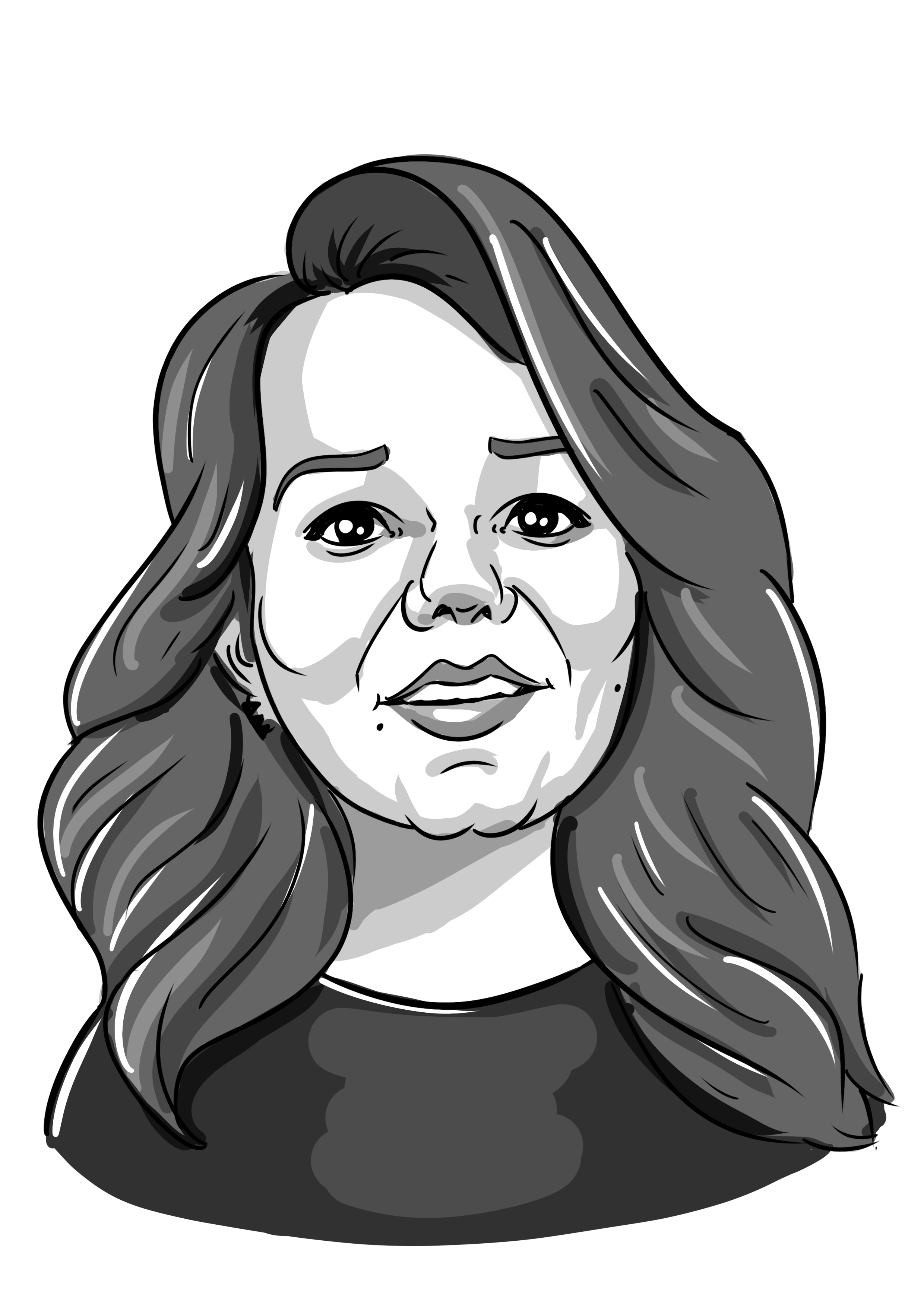
Youstina Alber is a heart-centered entrepreneur whose main focus of experience is to enhance and develop the business skills of youth through various channels with different methodologies. She earned her Bachelor Degree of Alsun and Mass Communication, Alsun Department from MIU in 2010. She got her MBA from ESLSCA Business School of Paris with the major of Global Marketing in 2014. She is ESLSCA Business School Certified Trainer.
In 2015 She moved to the development sector focusing on Entrepreneurship through developing and supporting startups with various Entrepreneurship crucial services, serving as Communication and Partnerships Manager in EiTESAL for IoT start-ups. Besides she has been designing and tailoring entrepreneurship programs to fit the different segments of students as the Innovation Campus Day at the French University in Egypt and the Innovation Hub that was initiated by The Faculty of Engineering at Ain Shams University. She was recently working as Entrepreneurship and Innovation Lead at INJAZ Egypt managing “San3ety Ganoub ElWadi” an Entrepreneurship program specialized for Vocational education students and graduates in Upper Egypt.
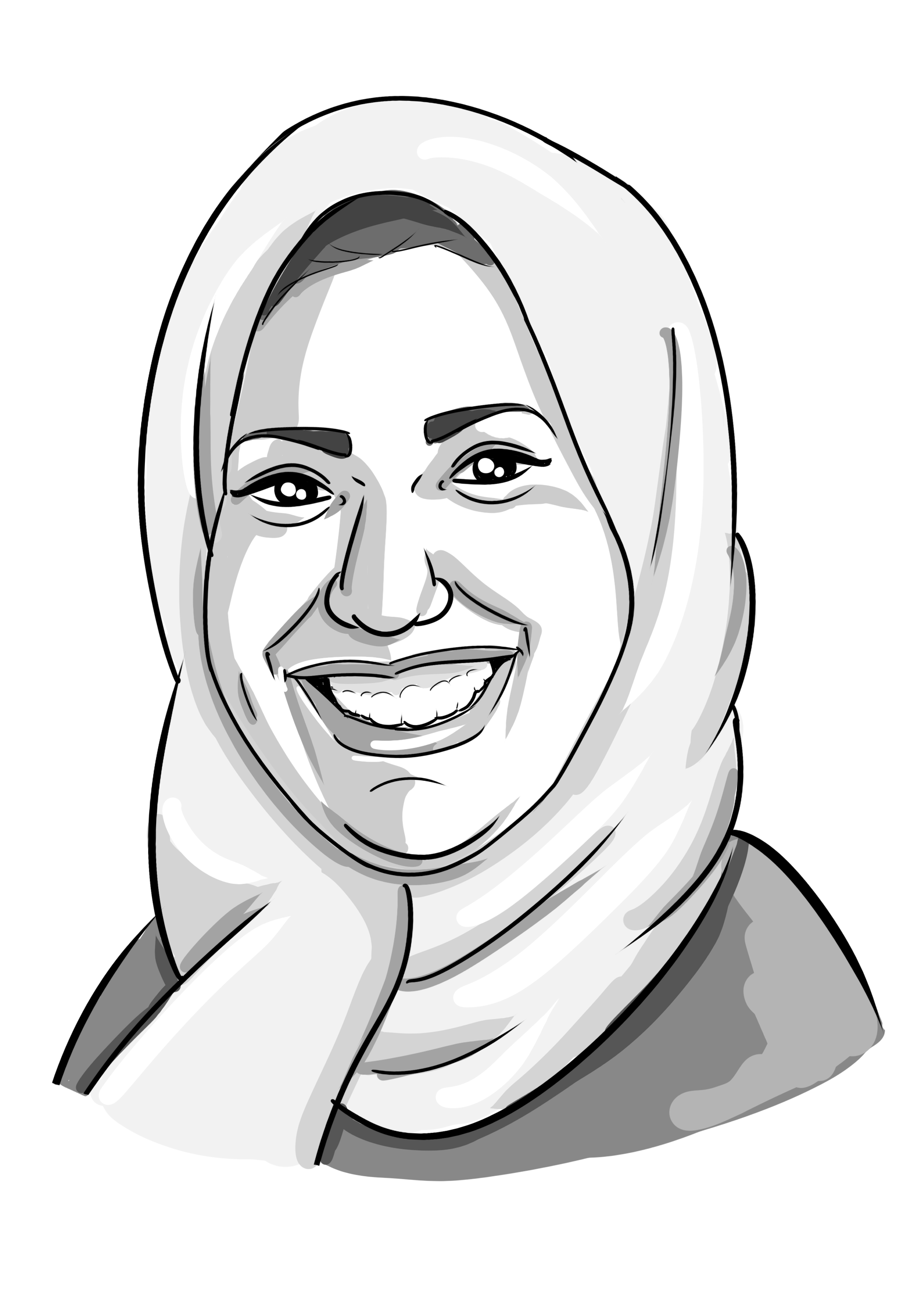
Reham El-Deeb is the Business Development Manager of Information Technology Institute. She has around 14 years of experience in the information technology sector and has always been fond of technology and how it effects our daily lives. Reham is also a certified Design Thinking trainer by Zero 360. the innovation company in Berlin. She is part of the GIZ team working in the "Labour Market Access Project" and the "Social Innovation Platform". She believes in the power of design thinking. It allows individuals to view a problem from a different perspective as well as encourages creative problem solving.

360 Job Profiles
Challenge: In Egypt, the expectations of job seekers are often high and the impression they have of specific jobs is not always fitting. This in combination with often bad working conditions leads newly placed youth in jobs leave their job again quickly and start something new – oftentimes in the informal job market.
Solution: During a study trip to Germany, LMAP discovered the work of the German social start-up Studio2B/Dein Erster Tag and their model. They are providing schools in Germany with VR sets including many different job profiles for orientation sessions. LMAP wanted to transform this example to Egypt and started producing 360° videos in order to help young job seekers in Egypt have realistic expectations on specific job profiles (hotel kitchen chef, retail sector, etc.) and thus reduce the turnover of new employees in the Egyptian labour market. The Studio2B-team trained a batch of Egyptian film-makers/students on how to produce these videos in Egyptian companies.
The goal is to have the Virtual Reality glasses in LMAP’s partner employment offices and other relevant institutions, where job seekers can get a simulated experience of different jobs.
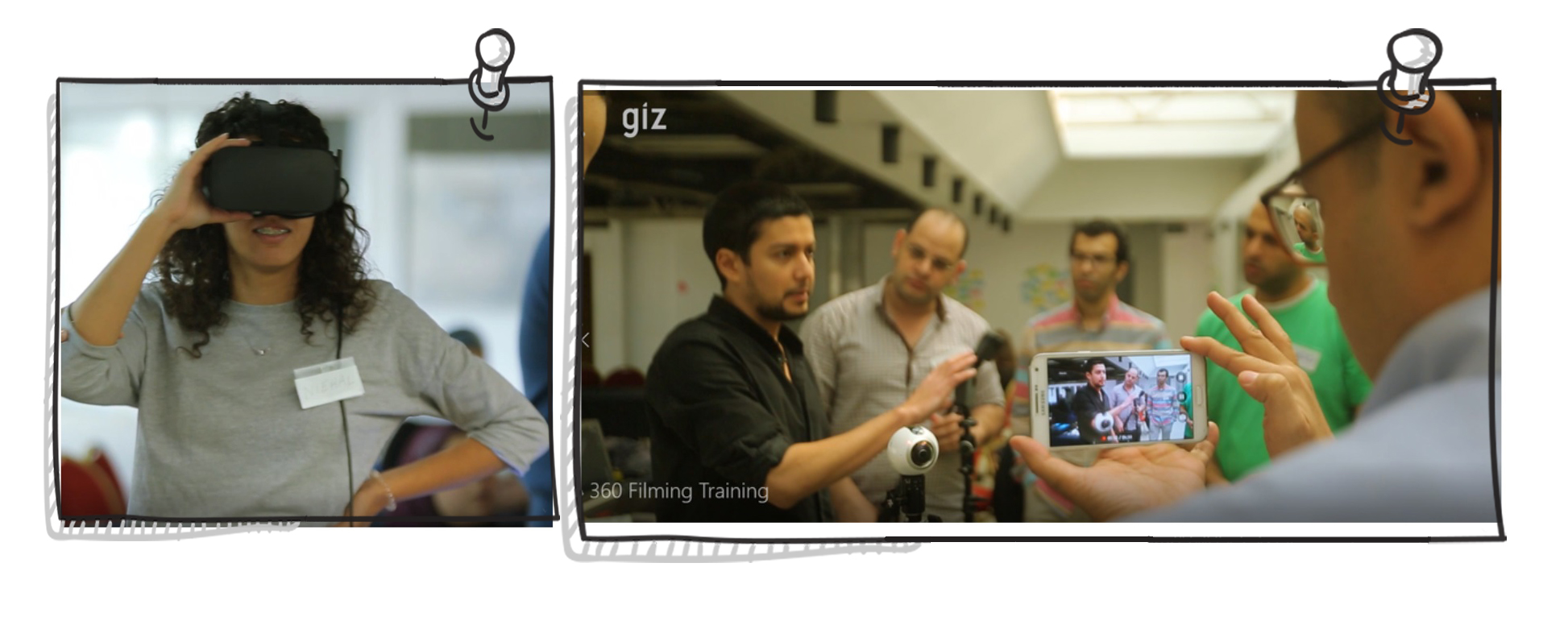
Digital Serious Games
Challenge: To educate workers and job seekers in Egypt on various issues such as rights and responsibilities, occupational health and safety awareness and communication among others at the workplace and thus improve their working conditions.
Solution: In 2017, LMAP established contact with the Egyptian Information Technology Institute (ITI) in order to collaborate on the topic of serious games. ITI was interested in developing the game track further into the direction of serious or educational games. LMAP was a good match because it could provide the students with actual challenges from the blue collar labour market, which they could address with topics such as job preparation, job interviews or occupational health and safety.
LMAP and ITI have developed different methods in order to reach a first prototype of a serious game. They have collaboratively organized two hackathons and worked on graduation projects for the 9-month and for the 3-month track ITI is offering to its students. Among the games for the hackathon was also a virtual reality game for health and safety measures at a factory.

Non-Digital Serious Games
Challenge: How to eliminate sexual harassment on companies' sites.
Solution: It started with a Design Thinking workshop which introduced a a training manual to be delivered at factories as a solution. The idea was further developed over time to become more interactive as a board game to raise awareness about the Egyptian labour law and eliminate sexual harassment on sites.
The 'Safe Environment' board game has been developed in 2018 and was tested with almost 20 companies with both male and female blue-collar workers. It was then decided to revamp the board game design based on the feedback received from the workers and the management teams of the companies. Currently, the team is running rounds of the board game design testing and iterations and it is expected to implement the second design in more than 20 companies by the end of 2020.

Gamification
Challenge: The turnover rate of blue-collar workers in the printing sector is high particularly among lower skilled newly employed workers who may leave within the first three months of their employment. This affects the productivity at work and also the moral of the remaining blue-collar workers.
Solution: The issue was addressed in an innovation cycle and a Pointing System prototype called Makani wa Matrahi was developed. It was initially tested with workers in the printing sector and a full test started in 2019 at Nahdet Misr (NM).
The objective of the system is to increase the retention rate through a better employment quality of workers in factories. Through the transparent performance monitoring and the related rewards as well as introducing game elements in that process, the aim is to increase the loyalty of the workers towards their workplace, create an attractive work culture by recognizing and rewarding the workers.
The system works the following way: Each worker can collect points for achieving certain goals (e.g. productivity, punctuality, cooperation level, etc.) which are agreed upon between NM and LMAP under the involvement of the employees. The data of the involved employees will be entered into the system and in a regular interval the company will offer to transfer the points into predefined rewards, whose prices (in points) have been agreed upon in advance. During the trial and implementation phase Nahdet Misr’s HR team and the workers’ managers and supervisors will be trained to use the system and evaluate the workers according to clear criteria linked to Nahdet Misr core values and KPIs to measure the performance and activate the pointing system. In the end of the trial phase, the impact will be measured on the turnover rate of the newly hired incumbents, who are still in the probation period as well as on workers satisfaction and cooperation level.

Digital Transformation
Challenge: Develop an in-house open source solution to improve job quality for blue collar workers at Siemens sites. The successful implementation of the solution can then be applied at other companies with similar challenges.
Solution: It all started exploring potential collaboration opportunities between GIZ- LMAP and Siemens after attending the Design Thinking workshop conducted by the Social Innovation team at Rise Up Summit in 2017.
A 3-day Design Thinking workshop was designed to find a solution to the challenge statement: ‘How might we improve the supervisors’ experience at Siemens' sites’. The workshop came up with ‘My Track’ prototype: an application accessible from tablets on site which shares Siemens rules & regulations, news and sites’ achievements in simple Arabic together with the workers’ digitized information such as allowances, attendance, leave requests, overtime, etc. Rounds of testing showed high interest from the blue-collar workers side and several iterations took place to include their feedback during the technical development of the application.
The application launching and implementation was expected to take place during the first quarter of 2020 targeting more than 200 beneficiaries, which has been unfortunately on hold because of the pandemic. For hygiene purposes, we’re currently in the process to transform My Track into a mobile app and make it accessible by each blue-collar worker through their phones.

The following videos will give you a glimpse of how we actually do it on ground:
VR Training
360 Film Training
360 Film Making
Android Games
VR Hackathon